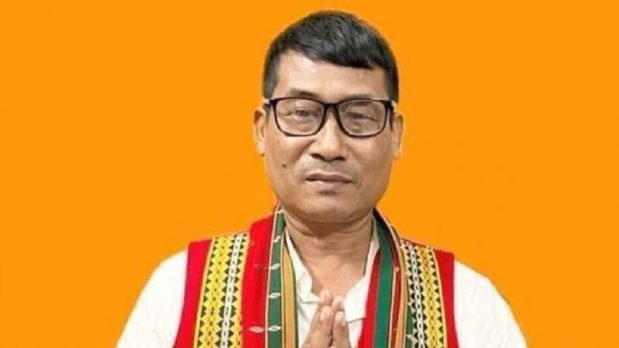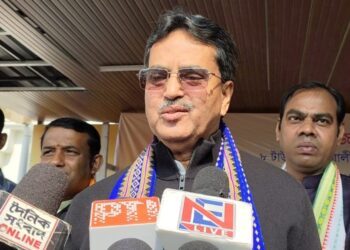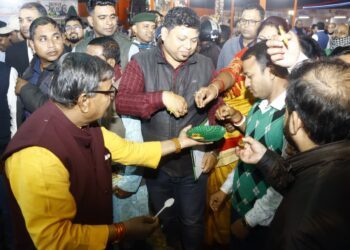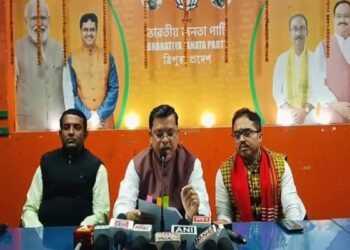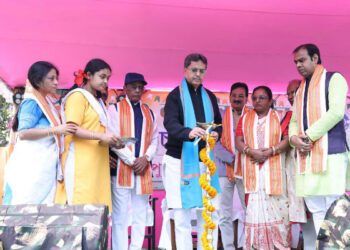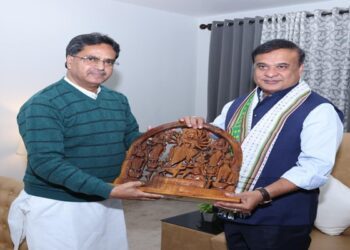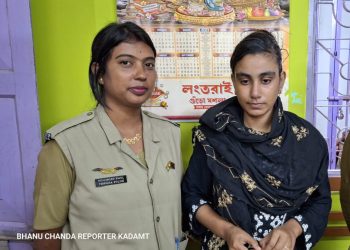Agartala, July 10: In a direct counter to the nationwide general strike called by ten central trade unions, BJP workers in Tripura’s 29-Krishnapur Mandal actively worked from early Wednesday morning to maintain normalcy in public life. Their efforts were aimed at keeping local markets, transportation, and educational institutions operational despite the bandh.
Leading from the front, Tribal Welfare Minister Bikash Debbarma conducted a day-long visit across his constituency. He visited multiple schools and Anganwadi centers, reviewed attendance, and interacted with staff to ensure educational services were unaffected by the strike.
Beyond institutional checks, Minister Debbarma also engaged with local residents and traders in Krishnapur’s marketplaces. His outreach aimed to reassure the public and reinforce the government’s commitment to uninterrupted civic life.
In a brief statement, the minister asserted, “The people have given their verdict today—they don’t want a bandh, they want work. We cannot let public life be disrupted. These kinds of strikes ultimately harm common people.”
He emphasized that such shutdowns hinder daily wage earners and disrupt essential services, which contradict the public’s aspirations for progress. “Tripura is on a path of development. The people are eager to move forward, not be pulled back by politically driven disruptions,” he added.
The BJP’s proactive stance in Krishnapur reflects the ruling party’s broader narrative of governance and continuity, especially in the face of opposition-led protests. Minister Debbarma’s presence on the ground sent a strong message of resistance to the bandh and support for uninterrupted public services.
Party workers claimed that despite the strike call, most businesses in Krishnapur remained open, transport was functional, and daily life continued with minimal disruption—showcasing what they described as the public’s rejection of politically motivated shutdowns.


